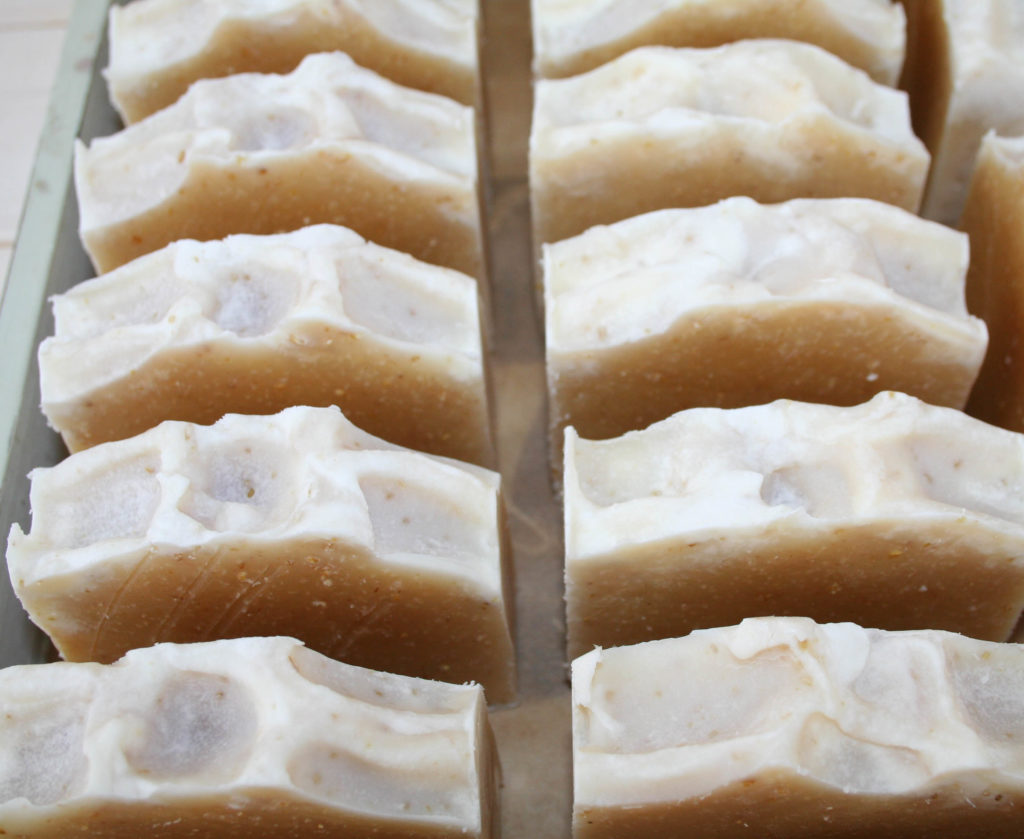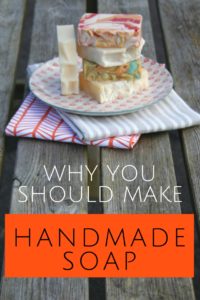It’s confusing, isn’t it? So many different products for washing your skin these days. Liquid soap in a pump, soap from the main commercial providers and now over the last few years there has been a big resurgence of handmade soap makers all over the world. So many different types of soap and it’s so difficult to choose the best one to use.
You should use handmade soap.
‘But you make and sell handmade soap’ I hear you cry…’You are biased!’ Well, actually I am but for very good reasons.
I first started to make handmade soap because I have psoriasis. I don’t have a serious case but I found that when I use products that moisturise my skin the psoriasis is much better. I use a lot of moisturisers on my knees and elbows and on my hands. But when you have a young family you are constantly washing. I found my hands were very dry and this was causing more frequent outbreaks.
At that time I was using liquid handwash. I did some research and found that it wasn’t actually soap. It was a mixture of other detergents which were playing havoc with my hands. So I stopped using that immediately.
I switched to bar soap which I bought at the local supermarket. Well, that was just as bad. My hands were really dry and the skin was cracked and broken.
At last, I read an article in a magazine about making handmade soap. But here in the West of Ireland back then, there wasn’t any available locally. So I decided to make my own.
You can read all about it in the Just Do It post.
Turns out that handmade soap is made in a completely different process than commercially made soap.
Commercial soap is made by boiling all the ingredients together until the saponification reaction is complete. Then the solid soap is sieved off. The remaining liquid contains the glycerine produced in the chemical reaction. This is removed, the glycerine recovered and sold to the cosmetic industry.
Handmade soap has a much lower reaction temperature than this. Most soap makers soap at around 30-35 degrees C. This allows the properties of the oils used to have a better chance of being retained.
Of course, handmade soap makers don’t remove the glycerin from their soaps. They keep all that moisturising goodness in there. And that’s one of the reasons that handmade soap is more expensive.
Because the soap is boiled and then sieved off, there is no extra oil in commercial soap. Handmade soap contains up to 10% extra oil…called the superfat. This is to ensure all the lye is used in the reaction but also so your hands are left soft with a thin layer of nourishing goodness after washing. Commercial soap can strip oil away from the skin without replacing it, leaving the hands dry. The superfat in handmade soap replaces the oils washed away with the dirt and leaves your hands feeling like you have used lotion on them.
Commercial soap makers are trying to make a lot of profit so they tend to use cheaper oils. Handmade soapmakers are worried about making the best bar they can and they love to experiment with different oils. So you tend to get luxurious oils in handmade soap formulations. As new oils become available, the possibilities are endless. My particular favourite is cocoa butter.
Handmade soap may also contain lots of other lovely additions like milk, honey, oatmeal, botanicals or seeds. You won’t find these in commercially made soap.
Handmade soap makers do not use preservatives. It’s just not needed. So there aren’t any nasty preservatives hidden in there.
Commercial soap sometimes contains a lot of other harsh detergents besides the soap. These can be drying and may not agree with some skin types. Handmade soap only contains soap. No other detergents.
If you use handmade soap you can make sure all the ingredients are sustainably produced. The big one I’m thinking of here is palm oil (more about that in another post later). Most commercial soap uses palm oil as it makes a hard bar of soap. But we have no way of knowing if the palm oil used in commercial soap is sustainably farmed. N on sustainable farming of palm oil destroys the habitat of the Orang Utan.
Commercial soap sometimes contains other ingredients to add bulk. These are fillers and don’t add to the efficiency of the soap. They are just there to make it heavier and bulkier…and worse value. No need for these in handmade soap. Everything in it has value and is worth putting in.
If you make your own handmade soap you can customise it to contain the ingredients you love. If you only use essential oils, put those in. If you are vegan, only use plant oils. If you love cocoa butter (like me) you can use lashings of it in your soap. You can tailor any recipe to suit your own needs. How’s that for power over your own skin?
Lots of us soap makers run our own businesses. We strive to make a living out of the craft that we enjoy (and that benefits others) often at a very small amount per bar. When you buy from a handmade soap maker you are supporting small business, not the big guys. You are helping to put food on someone’s table, helping with school books, paying the bills. Not adding to the riches of a faceless company.
If you buy your soap locally, your money stays local. The soap maker spends money locally too. That’s got to be good for your town and your area.
Handmade soap is gorgeous! Whether it is a simple bar or something more intricate, handmade soap is so much more decorative than your plain bar. Much better for giving as a gift. Everyone loves getting something handmade. It’s much more thoughtful than something made in bulk.
I love handmade soap. It’s unlike any other kind of soap available. If you don’t already use it I urge you to give it a try. Find a supplier at your local farmers market or in your local gift shop. Search online…or even buy from me! Once you try it you won’t use ordinary soap again. And it’s really fun to try making it. In fact, it can get you hooked.


